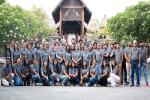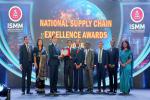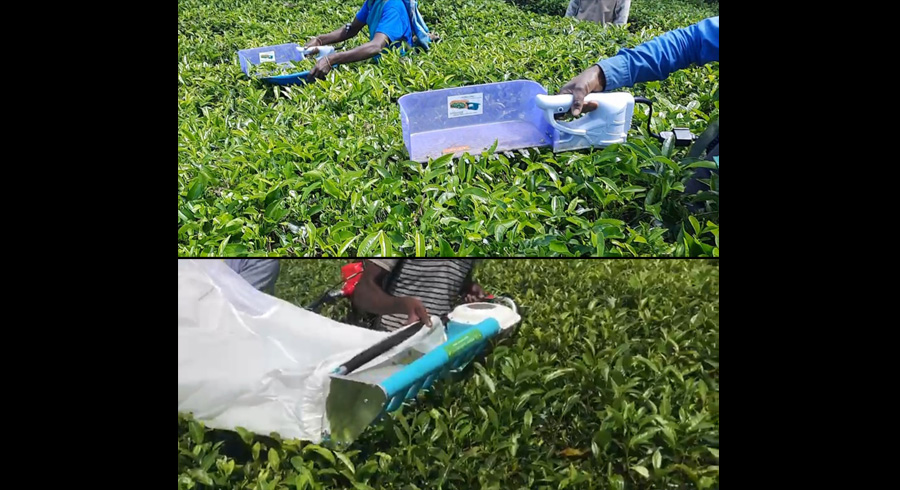Yet, it could be argued that Agarapatana Plantations PLC, a RPC belongs on that list.
The company has created a transformative leap in productivity by undertaking a series of initiatives, including mechanizing its tea harvesting without compromising on the integrity Sri Lanka’s hallmark “two leaves and a bud”.
This plucking standard is central to the country’s reputation for high quality orthodox tea.
The results are measurably significant.
To begin with, there is a 50-60 % increase in plucking per worker.
Secondly, it has reduced plucking costs by nearly Rs 50 per kilo, which translates into a 20-25 % decrease in overall operating costs.
Third, mechanization has doubled worker productivity while also nearly doubling income for most of the workforce.
Agarapatana’s journey into mechanized harvesting began in 2019, a bold move in the face of increasing labor constraints and other operational inefficiencies.
What started as a calculated risk experiment has now become a strategic pillar of the company’s success?
With mechanized tea plucking, Agarapatana has broadly influenced the broader industry narrative.
Like many other plantation companies in Sri Lanka, Agarapatana continues to face growing labour shortages.
Against this backdrop, mechanization is the pathway forward.
In 2023 alone, the company faced a shortage of nearly 3,700 workers, a challenge that mechanization has helped to mitigate.
Today, 75 % of its pruning operations have also been mechanized.
Currently, mechanized harvesting is being progressively increased and plans are underway to scale this up to 30 % of the company’s total tea acreage by the end of next year.
This is part of Agarapatana’s broader vision to establish a sustainable, future-ready plantation model that responds to both human capital constraints and operational demands.
Modern Machines, Smarter Practices
The company has invested nearly Rs. 75 million in procuring 451 high-quality harvesting machines mainly from internationally recognized manufacturer Ochiai of Japan.
In addition to investments in harvesting equipment, Agarapatana has ramped up its overall technology spending.
Technology investments rose by 79 % in 2023/24, from Rs. 112 million the previous year to Rs. 200 million.
This included Rs. 17 million for mechanization initiatives and Rs. 162 million in plant and machinery.
“These investments reflect the company’s broader push toward digital transformation and automation, within its administrative and manufacturing functions,” says Denham Madena, CEO of Agarapatana Plantations.” Agarapatana Plantations has maintained production growth to become one of the largest producers of made tea among RPCs in the high-grown category.”
Factory automation such as conveyorization and other upgrades have aligned operations to meet global food safety standards, while reducing manpower requirements in processing facilities.
Consequently, the company’s finances have become stronger; shareholder equity has risen due to sustained profitability and cost-efficiency gains.
The impact on employee morale has been great. Despite early resistance from manual pluckers who feared job losses, ongoing sensitization and training have changed the narrative.
Workers now understand that machines are being used to address worker shortages, not to replace them.
Many female workers have been trained to operate these machines, with encouraging results.
Daily earnings for machine operators now exceed Rs. 2,000 during the cropping season and average over Rs. 1,150 through the year.
For many, this shift has generated greater dignity and job satisfaction.
The process of mechanized harvesting remains closely aligned with the traditional emphasis on quality.
Female workers, the backbone of the plucking workforce, have been extensively trained to operate these machines safely, wearing gloves and protective gear to ensure both hygiene and safety.
A local consultant with deep expertise in machine harvesting in East Africa was brought in to oversee the transition and provide hands-on training across estates.
Agarapatana Plantations manages several estates across the Agras and Uva regions.
Machine harvesting is currently operational in 11 Agras estates including Balmoral, Glasgow, Diyagama East and West, Sandriham, Waverly, Hauteville, Holmwood, New Portmore, Torrington, and Albion and 8 Uva estates (Nayabedde, Gonamotawa, Kahagalla, Haputale, Glenanore, Beauvais, and Pitaratmale).
During peak seasons, the estates can complete two full rounds of harvesting per month and 1.5 rounds during lean seasons.
Manual labor still accounts for 55–60 % of plucking; a labour shortfall of about 40 %, machines help bridge the gap, ensuring continuous output.
Beyond direct operations, this shift has had a remarkable social impact.
Younger workers, both male and female, are showing renewed interest in estate employment, drawn by the relative ease, safety, and respectability of machine operations.
Non-resident workers – those not living on the plantation itself – are increasingly attracted to these functions, broadening the worker pool to beyond the traditional on-estate population.
The result is a more diverse, engaged, and motivated workforce.
From a commercial standpoint, the consistency achieved by machine harvesting has improved product quality and reduced wastage, driving up gross sale averages at the Colombo tea auctions.
By achieving cost efficiency without compromising on quality, Agarapatana has found a powerful lever for maintaining long-term profitability.
Mechanization, once seen purely as a solution to worker shortages, is now a central element of the company’s growth and value creation strategy.
For a sustainable future
The first RPC in Sri Lanka to implement commercial-scale mechanized tea harvesting, Agarapatana Plantations is paving the way towards a sustainable future driven by innovation, sound financial management and a strong commitment to social responsibility.
The company plans to increase its total revenue-generating acreage under mechanized harvesting to 30%.
With continued investments in modern machinery and factory upgrades, the company is positioning itself as a leader in the modernization of Sri Lanka’s tea industry.
Agarapatana’s proactive approach offers a replicable model.
It is a compelling example of how embracing innovation, while investing in people, can secure a more resilient and productive future for Sri Lanka’s plantations.






















